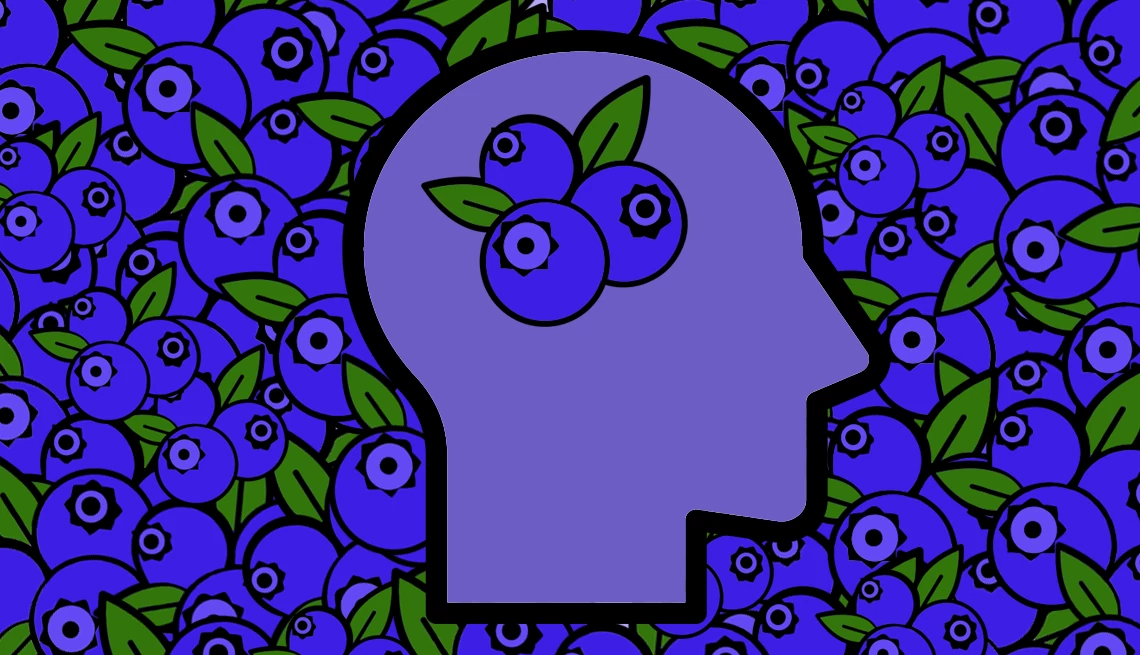AARP Hearing Center


Whether you stir them into yogurt, sprinkle them on cereal or just pop them in your mouth one by one, blueberries are a tasty fruit with some huge health benefits. The buzz is that they can work wonders for brain health, but are they worth all the hype?
Researchers have been touting blueberry's brain benefits with good reason. Research has found that blueberries can help with memory, mood, focus and more in people of all ages. Scientists believe that compounds in blueberries lower inflammation in the body and the brain, improve blood vessel function, enhance blood flow to the brain, support signals between brain cells and improve how the brain functions to bolster memory, executive function, visual-spatial function, psychomotor skills and attention.
Decades of research have found that bioactive compounds called flavonoids in the fruit can help sharpen brain function and attention. This is especially true for older adults, says Mary Ann Lila, a professor at North Carolina State University’s Plants for Human Health Institute.
Blueberries are the only fruit to be singled out as part of the MIND diet, a diet that research has linked to lower dementia risk.
AARP Brain Health Resource Center
Find in-depth journalism and explainers on diseases of the brain — dementia, stroke, Parkinson’s disease, mental-health topics. Learn about healthy habits that support memory and mental skills.
“It is the flavonoids, particularly the anthocyanin pigments, which are most potent for brain health,” Lila says. Anthocyanin is the flavonoid that makes the berry blue.
A 2024 Frontiers in Pharmacology report out this year finds that metabolites in blueberries have the potential to protect the brain. In addition to anthocyanin, the authors of the report called out flavonoids, carotenoids and vitamins C and E as potentially protective. Some evidence says they can change processes in the body that are implicated in age-related cognitive decline, amnesia and neurodegenerative diseases such as Alzheimer’s and Parkinson’s diseases.





































































More From AARP
8 Foods to Protect Your Muscles as You Age
Browse foods that can help prevent muscle loss, or sarcopenia, in older adults.
Quiz: What Foods Are Good for Brain Health?
Test your knowledge of the MIND diet, the gut microbiome and more
Take the Cognitive Assessment
Find out how you perform today in five key areas, including memory and attention